The term "martial law" has long been considered taboo in South Korea due to the trauma it has brought to history.
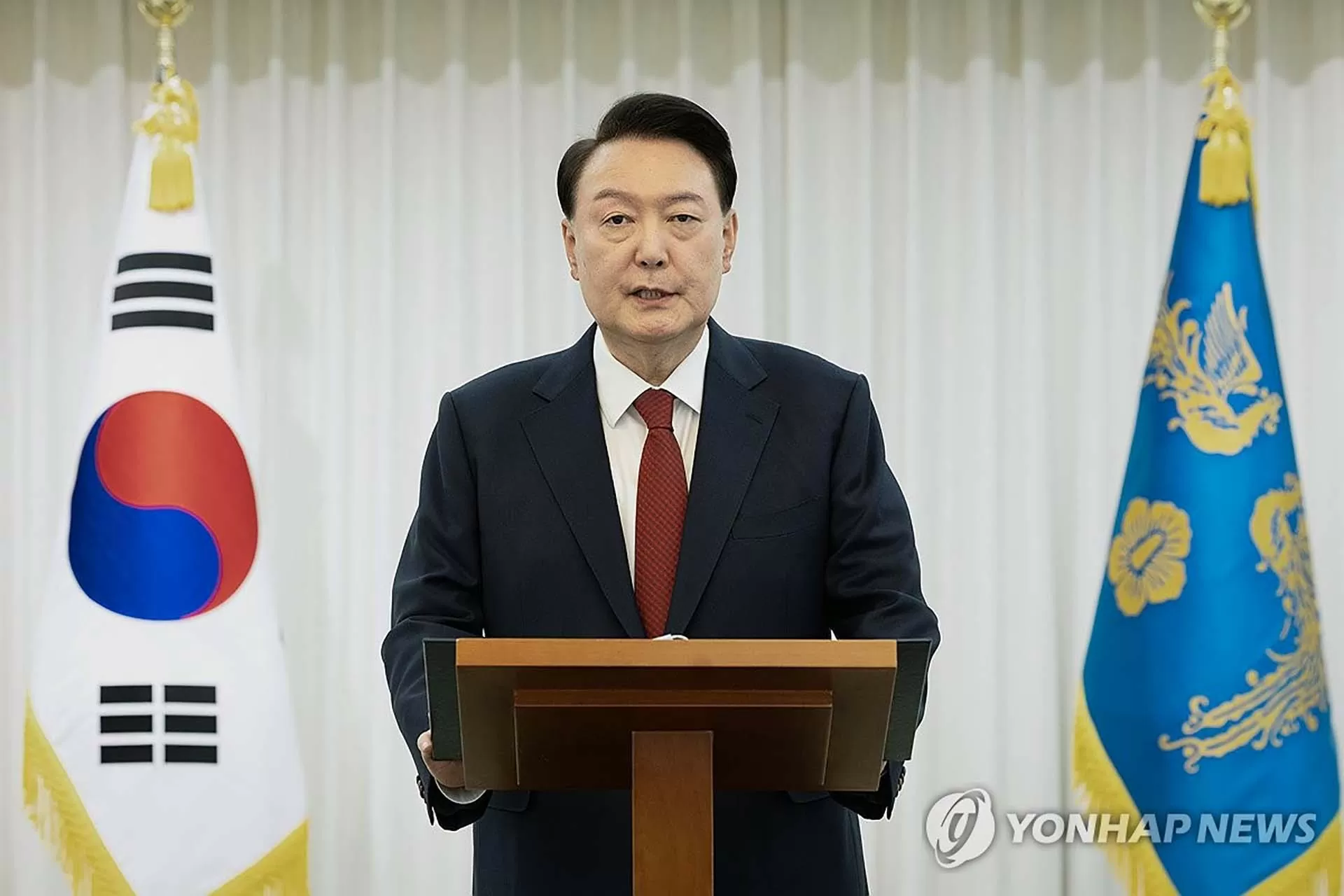 |
| President Yoon Suk Yeol speaks to the public in Seoul on December 14, after the National Assembly voted in favor of impeachment. (Source: Yonhap) |
The martial law decree that President Yook Suk Yeol declared late on the night of December 3rd only lasted for about six hours. This is not the first time in the history of this Northeast Asian country that has experienced martial law.
Why is there martial law?
According to the Korea Times, Article 77 of the Korean Constitution stipulates that the president has the right to declare martial law by mobilizing the military to respond to war, disaster or national emergencies. This order is divided into security martial law and emergency martial law, depending on the severity of the situation.
Martial law is imposed when there is serious unrest such as riots, war or major natural disasters. In this case, the military assists the government in maintaining order, while civil authorities continue to function normally, albeit under close supervision.
Meanwhile, emergency martial law is applied when the civilian system is completely unable to control the situation, such as in times of war or serious crises that threaten national security.
At this point, military power can replace the civilian system of governance, basic rights such as freedom of speech, assembly and political activity are suspended while the military directly controls the media, courts and public agencies.
Regardless of the type, martial law must be immediately notified to Congress, which has the power to lift it if a majority of its members agree.
The martial law declared by President Yook Suk Yeol was an emergency one. Those who violated martial law could be arrested and searched without a court order under Article 9 of the Martial Law Act. However, the martial law was quickly repealed by the National Assembly.
Tools of Power Consolidation
Statistics from the Korea Times show that since the South Korean government was founded in 1948, the country has experienced a total of 17 regional and nationwide martial law declarations, most of which were aimed at consolidating political power rather than resolving real national crises.
South Korea first experienced martial law in October 1948, when President Syngman Rhee declared it in response to an armed rebellion by the 14th Regiment of the Korean Army, which refused orders to quell a civilian uprising on Jeju Island, or the Jeju April 3 Incident. Later that year, martial law was imposed on Jeju Island, resulting in a massacre of civilians that left tens of thousands dead.
During the Korean War in the 1950s, the South Korean government declared martial law nationwide, after imposing it in some areas. Martial law was imposed during the April 19 Revolution in 1960 to suppress student protests against the dictatorship of President Syngman Rhee. During his term, Syngman Rhee declared martial law 10 times.
In 1961, Park Chung Hee staged a military coup, established a government, and declared martial law, the 11th in Korean history. In 1964, he declared martial law again in Seoul to quell protests against the normalization of relations with Japan. In 1972, he imposed martial law nationwide to pass the Yushin Constitution.
In 1979, following the Busan-Masan democracy protests, martial law was declared in Busan and South Gyeongsang. Following the assassination of President Park Chung Hee in October 1979, emergency martial law was imposed nationwide (except Jeju Island) for 440 days, paving the way for the military regime of President Chun Doo Hwan.
In 1980, Chun Doo Hwan extended martial law in response to the Gwangju Democratization Movement, which left hundreds dead.
After South Korea's transition from military rule to democracy in the 1980s, although there is evidence that some administrations considered martial law, no such order was issued until recently. This is believed to be due in part to a 1981 amendment to the National Assembly Act, which prohibits the president from unilaterally declaring martial law.
According to political experts, President Yoon Suk Yeol's sudden declaration of martial law shocked the entire country, with many even expressing outrage.
Ms. Kim Seon Taek, a professor of constitutional law at Korea University, said that there is no legitimate basis or prerequisite for President Yook Suk Yeol to declare emergency martial law.
According to her, the head of state violated legal principles of procedure such as immediately notifying the National Assembly after declaring martial law. At the same time, the military force invading the National Assembly and disrupting its functions is unconstitutional and illegal.
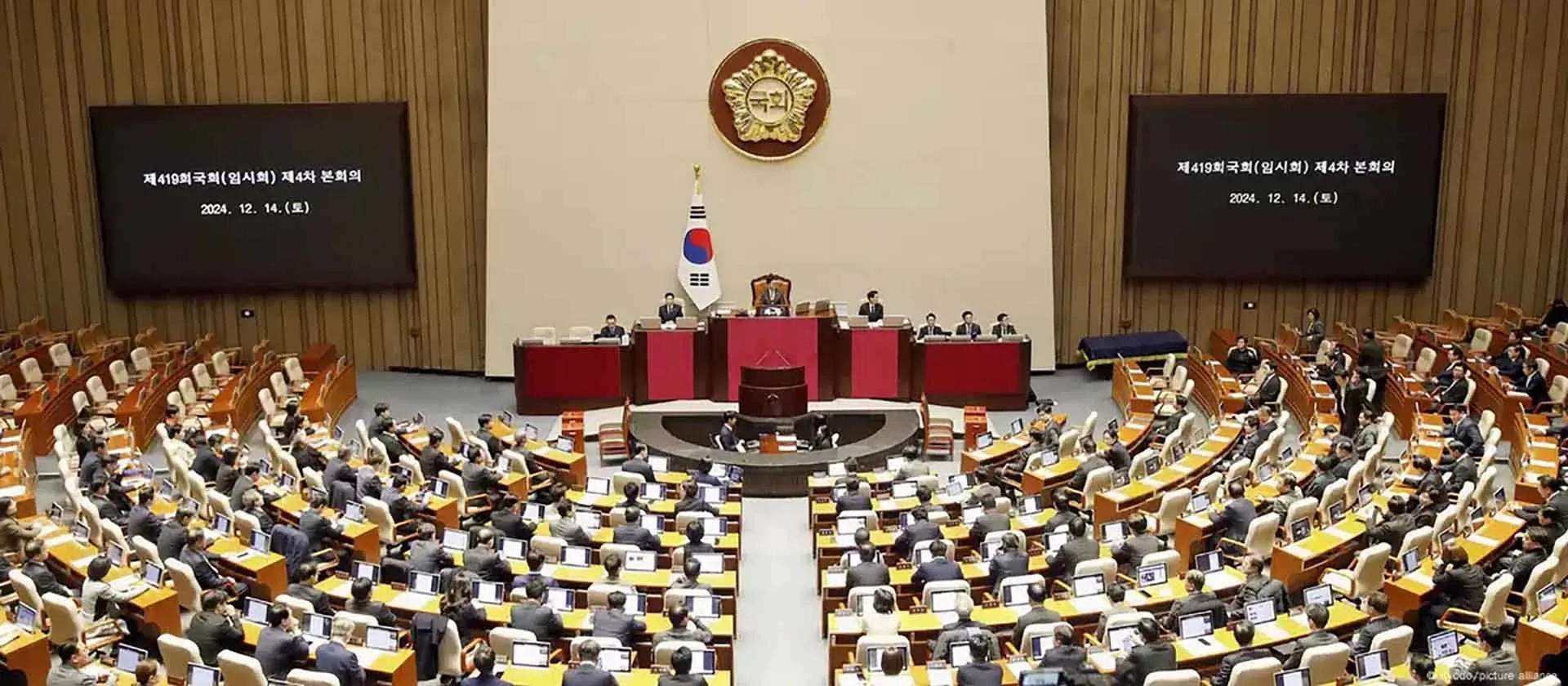 |
| South Korea's National Assembly voted to impeach President Yoon Suk Yeol on December 14. (Source: Kyodo) |
The future is uncertain
President Yoon Suk-yeol's political career faces major challenges as the National Assembly passed a resolution to impeach him on December 14. While he is not the first president to be impeached, he is the first leader to face such proceedings for declaring martial law since the 1980s.
Before Mr. Yoon Suk Yeol, two Korean leaders were impeached: Mr. Roh Moo Hyun (term 2003-2008) and Ms. Park Geun Hye (term 2013-2017).
Roh Moo Hyun was the first South Korean president to be impeached by the National Assembly. In March 2004, he was impeached by the opposition, which had a majority in the National Assembly, on charges of violating election laws by publicly supporting the Uri Party. He was suspended from office for two months.
However, tens of thousands of people took to the streets to protest the move. On May 14, 2004, the Constitutional Court overturned the impeachment and reinstated Roh Moo Hyun, which led to a sharp increase in his approval rating. After his term, Roh returned to his homeland peacefully until the storm hit in 2008.
At that time, the former President of South Korea was accused by businessman Park Yeon Cha, Chairman of the Tae Kwang footwear group, of accepting bribes while in office, causing public outrage. Despite his denials, in April 2009, Mr. Roh Moo Hyun still faced prosecution.
On May 23, 2009, he committed suicide after leaving a suicide note affirming his innocence. The former President’s sudden death shocked the entire country. Public opinion once again “reversed”, believing that Mr. Roh Moo Hyun was completely innocent and was forced to commit suicide.
Hours after Roh Moo Hyun's death, then-Justice Minister Kim Kyung Han announced the closure of the investigation into the former President and his family.
Meanwhile, as for Ms. Park Geun Hye, on December 9, 2016, the female President was impeached by the Korean National Assembly on charges of corruption, abuse of power and involvement in the scandal of her close friend Choi Soon Sil, who was accused of manipulating policies and receiving bribes from large corporations.
On March 10, 2017, all eight justices of the Supreme Court unanimously upheld her impeachment and removed her from office. A year later, Park Geun-hye was sentenced to 25 years in prison and fined 20 billion won ($17.86 million). In 2021, President Moon Jae-in pardoned her on health grounds. She was released in March 2022.
As for President Yoon Suk-yeol, the South Korean National Assembly is currently taking the first steps in impeachment proceedings against him. The South Korean interagency investigation unit is seeking to summon him for questioning this week.
According to a spokesman for the Constitutional Court of Korea, the agency will hold its first hearing on December 27. By law, Mr. Yoon Suk Yeol will be suspended from office until the Constitutional Court issues a ruling on the case, either removing him from office or restoring his powers.
The court has 180 days to make a decision, and if President Yoon Suk Yeol is removed, South Korea will have to hold elections to choose a successor within 60 days.
Not only is President Yoon Suk Yeol's political career facing an uncertain future, the ruling People's Power Party (PPP) is also facing the risk of disintegration, as Party Chairman Han Dong Hoon announced his resignation on December 16, while five members of the PPP Supreme Council expressed similar intentions.
Mr. Park Chang Hwan, a political commentator and professor at Jangan University, assessed that the President's move to declare martial law was "like political suicide", affecting not only the President personally but also the ruling party.
Source: https://baoquocte.vn/tu-thiet-quan-luat-den-luan-toi-297962.html



![[Photo] Prime Minister Pham Minh Chinh chairs a Dialogue with businesses and business associations](https://vphoto.vietnam.vn/thumb/1200x675/vietnam/resource/IMAGE/2025/5/31/b606d6f6ff584fa28af9f353c91bf15d)
![[Photo] Emotional and proud flag-raising ceremony and military review on Truong Sa island](https://vphoto.vietnam.vn/thumb/1200x675/vietnam/resource/IMAGE/2025/5/31/9b52525fce6f433083cd0a5bfee59f49)
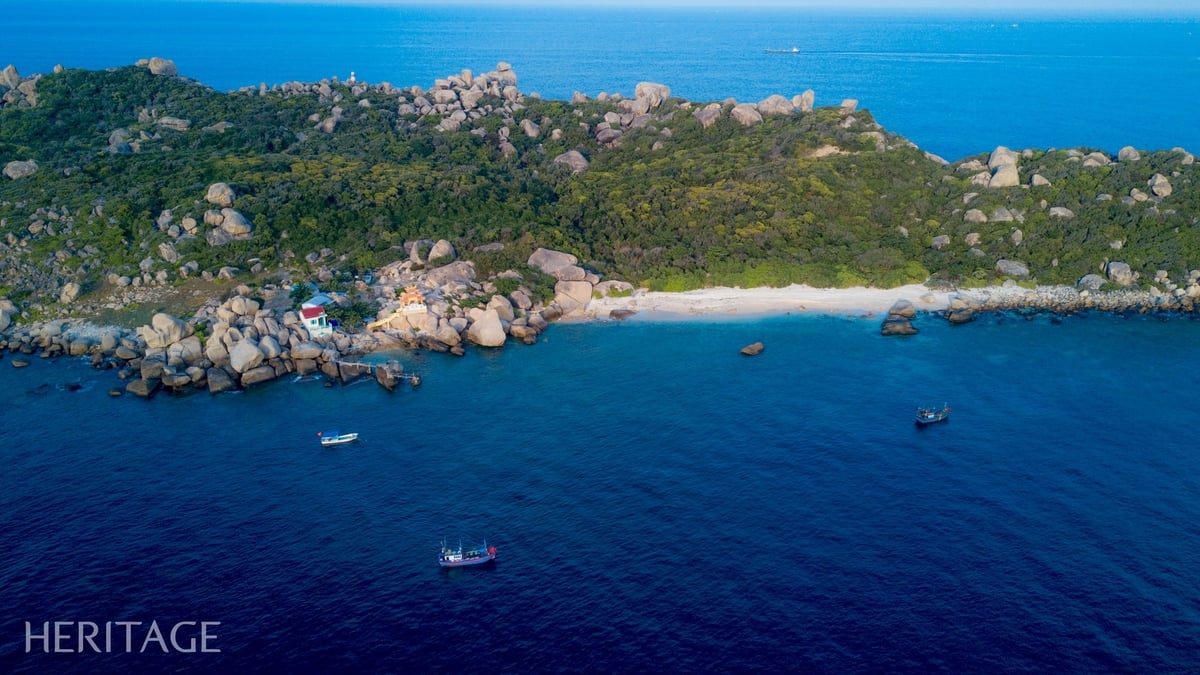
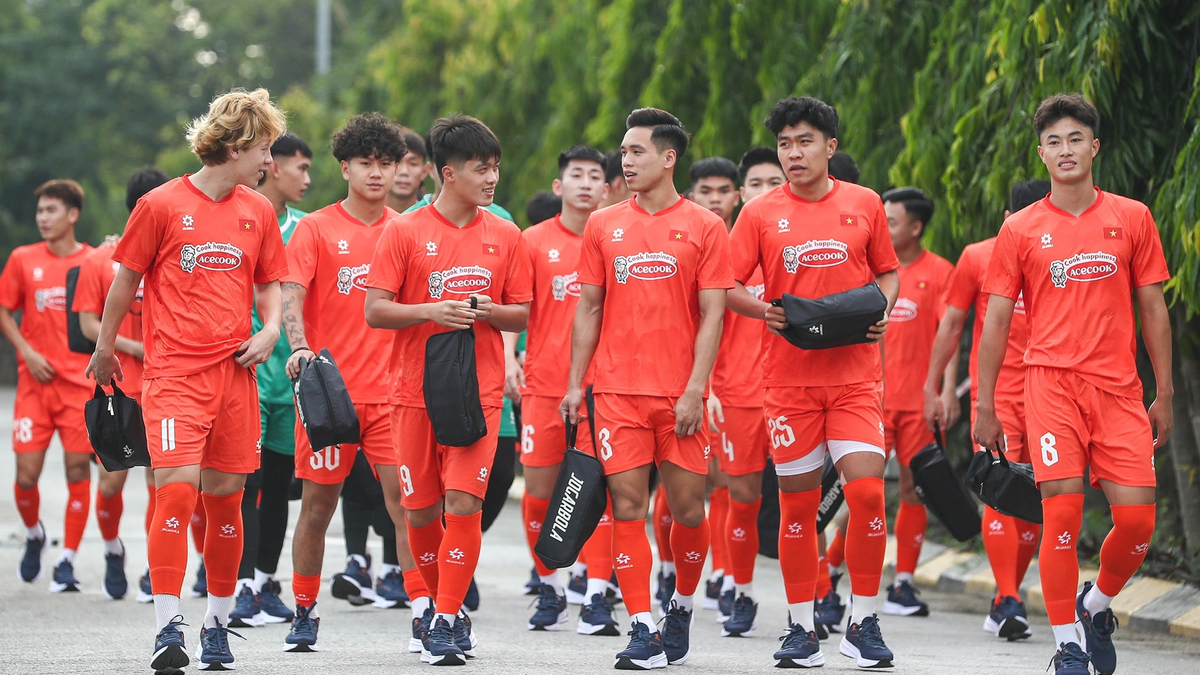
![[Photo] Crane falls on container truck and car at traffic construction site](https://vphoto.vietnam.vn/thumb/1200x675/vietnam/resource/IMAGE/2025/5/31/a8d3ae08da324cfe8ee406174c0eacc4)


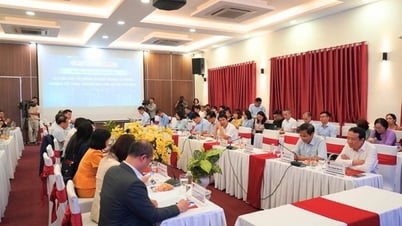
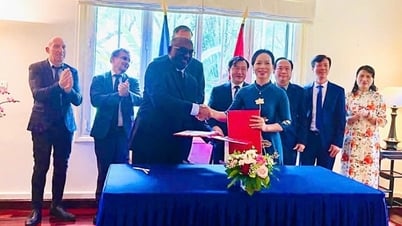

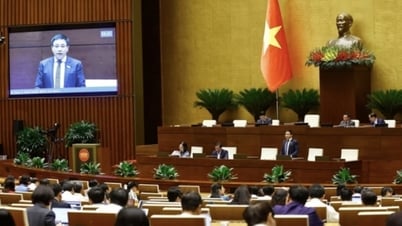
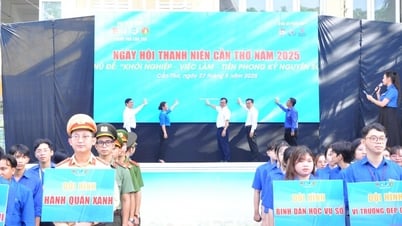




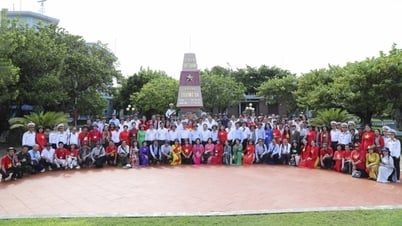

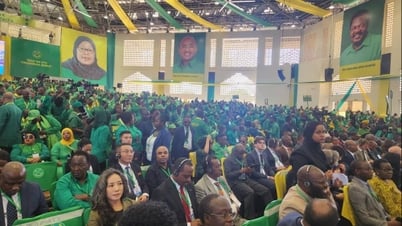

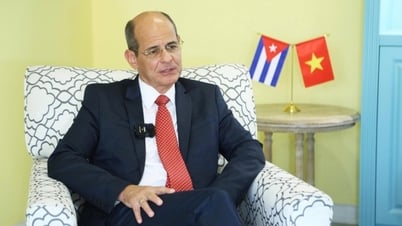
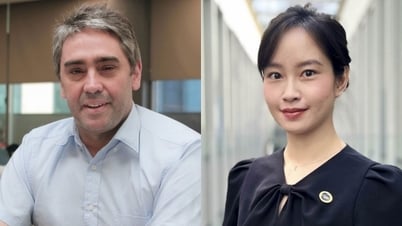
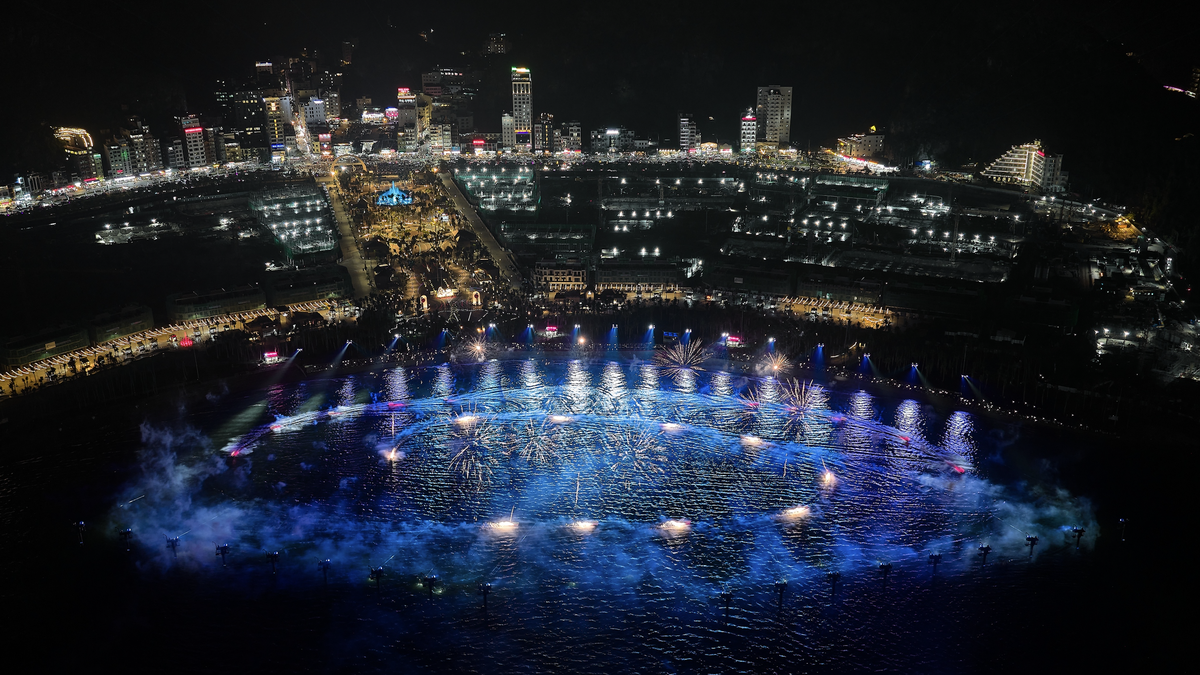
































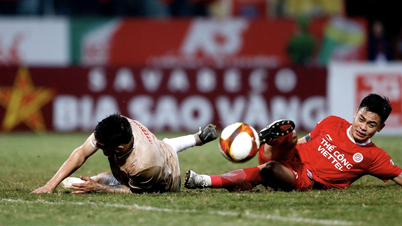

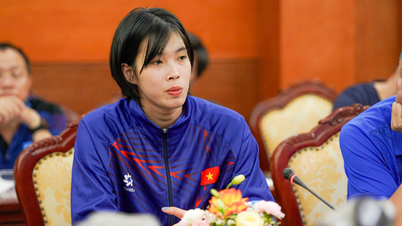








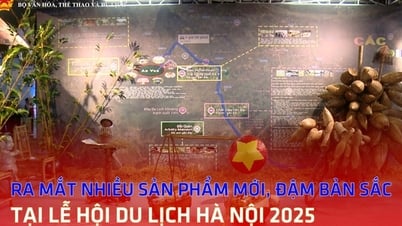
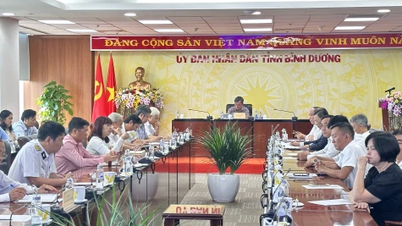

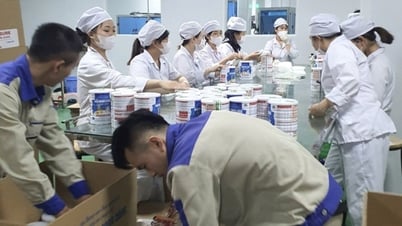

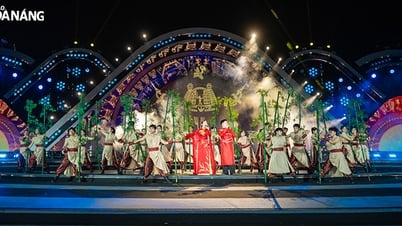















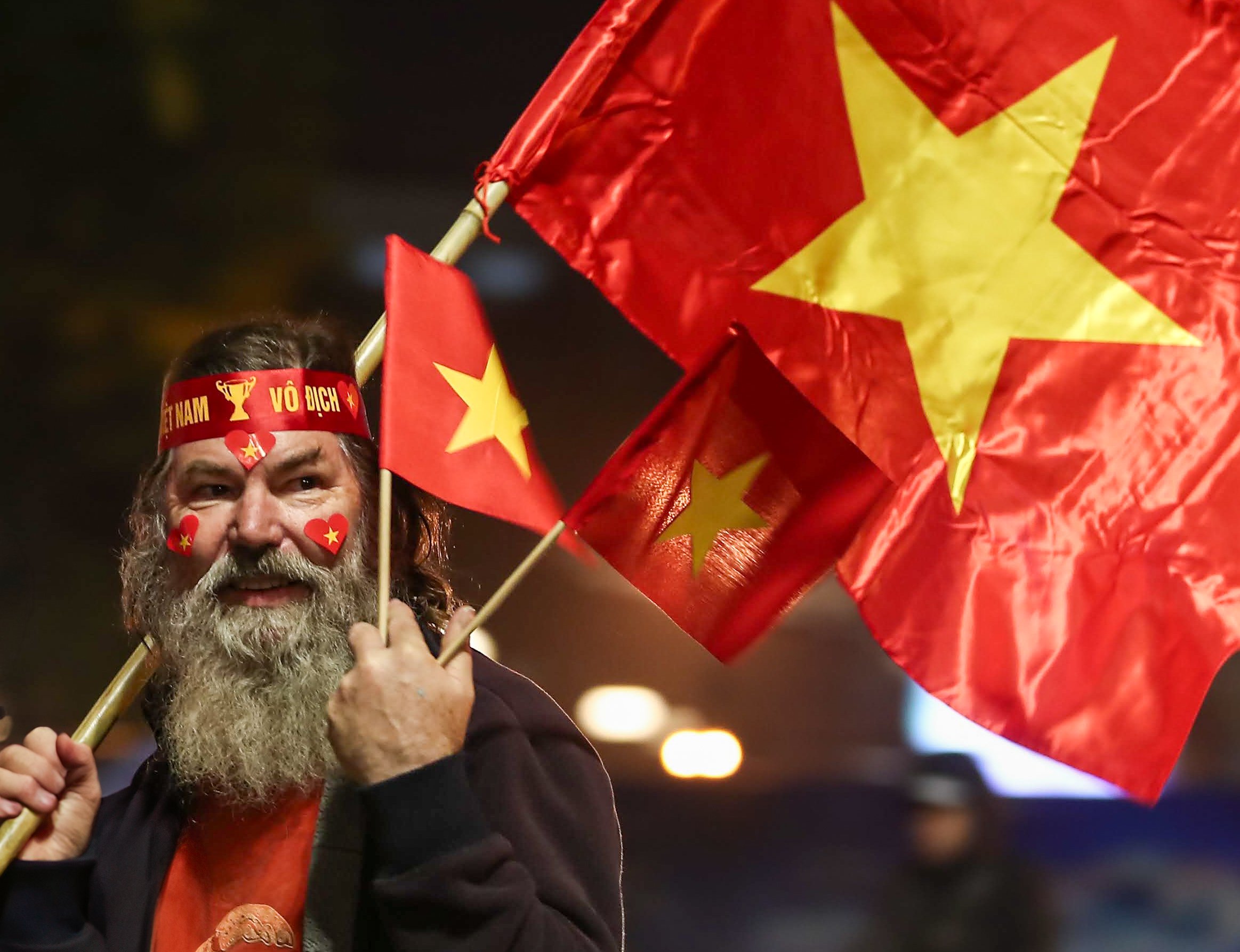



Comment (0)